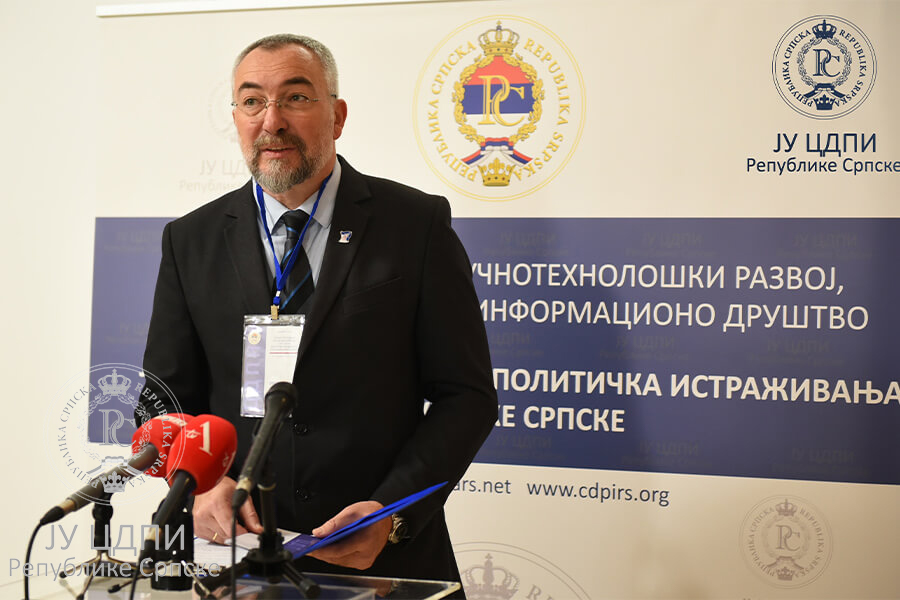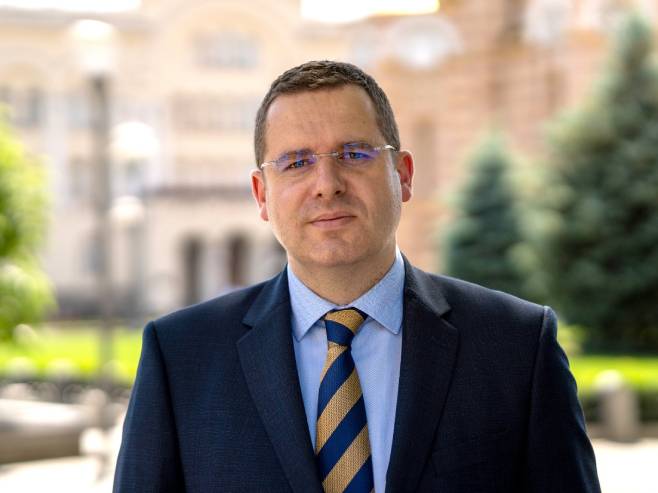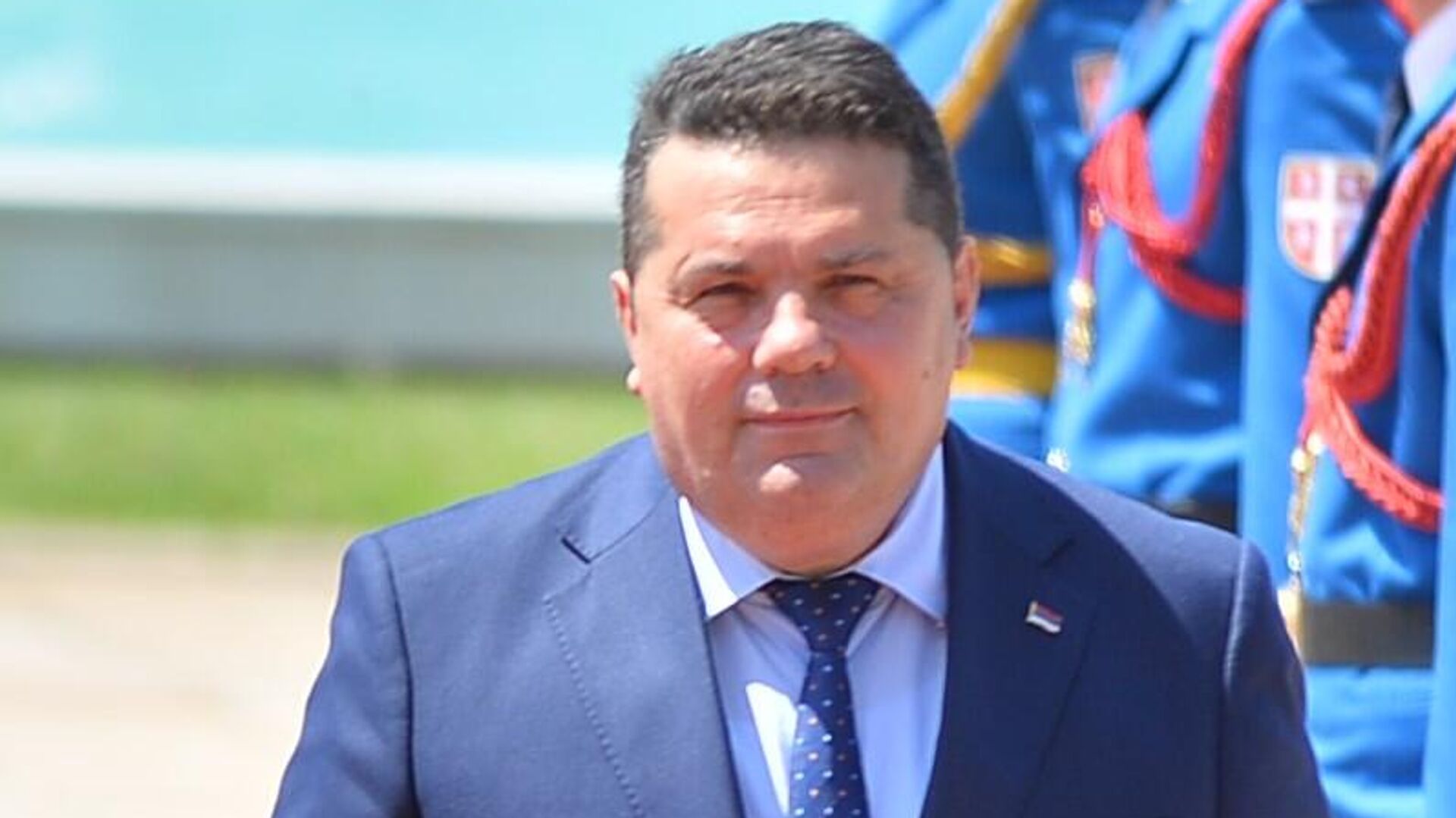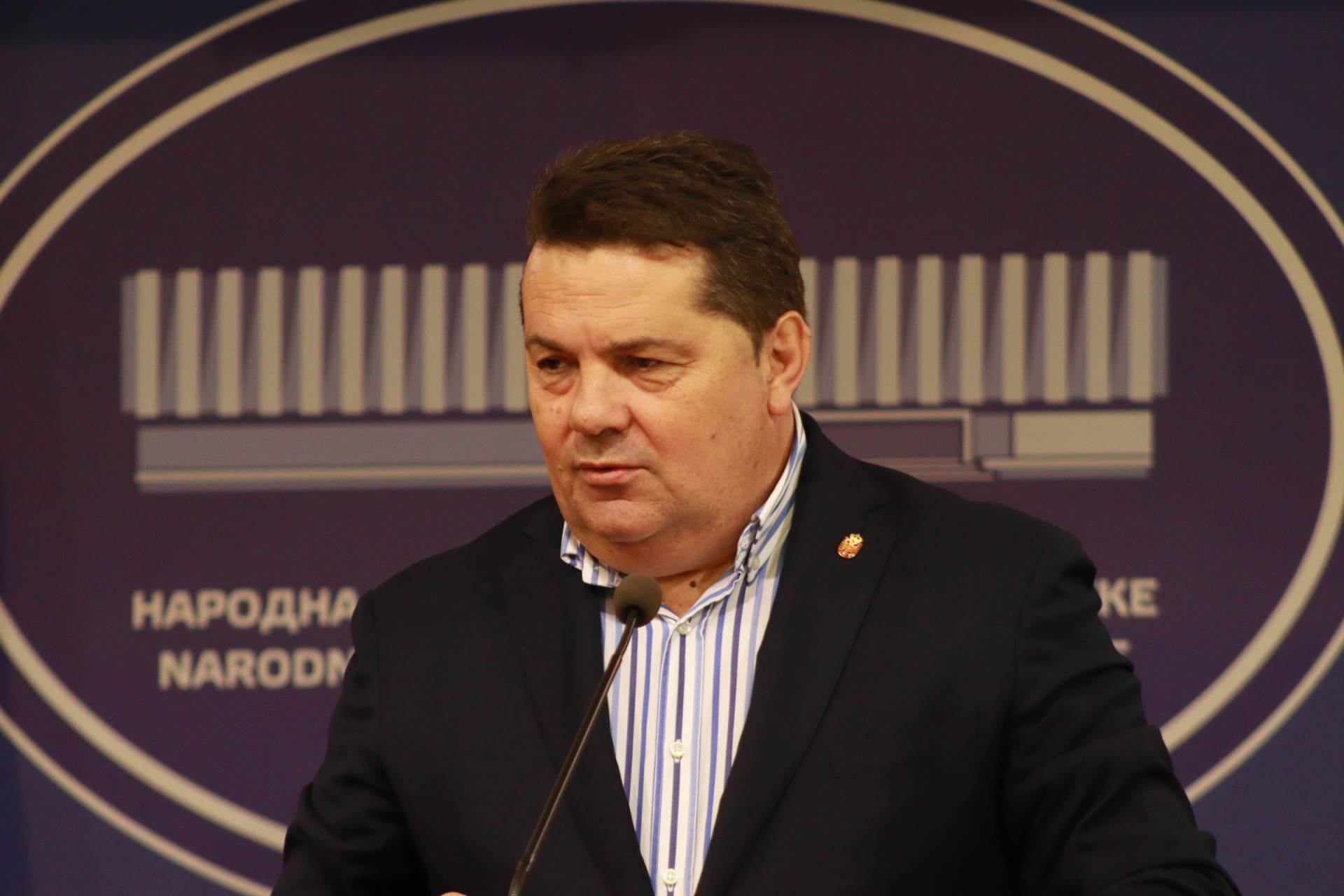The Director of the Center for Socio-Political Research of Republika Srpska, Dušan Pavlović, stated that globalist occult structures are once again depriving Europe of the right to peace, while Srpska has been fighting for international law and civilizational values for decades.
Pavlović noted that these same structures and ideologies, when it comes to the Balkans, Bosnia and Herzegovina (BiH), and Srpska, violate all norms of international law and act in an extremely destructive manner.
He pointed out that the international narrative often presents Republika Srpska’s President Milorad Dodik and its institutions as disregarding the Constitutional Court of BiH and destabilizing the country. However, it is obscured that the institution of the President of Srpska has a constitutional obligation, according to both Annex Four and the Dayton Agreement, to safeguard what was negotiated and agreed upon in Dayton, as ratified in Paris.
“The leadership of Republika Srpska has faced enormous pressure, attacks, and illegal sanctions over the years for defending and upholding the Dayton Peace Agreement, in which it played a key role and is thus its protector and interpreter. This consistent stance demonstrates that Srpska and its leadership are at the forefront of the fight to preserve international law and civilization against the destructive forces of anti-civilization, thanks primarily to their awareness of their own identity,” Pavlović wrote in an opinion piece for Srna, titled “Occupation and the Last Days,” which we publish in full.
Is Europe a Tragic General Paulus?
Since the onset of the proxy war in Ukraine, the situation increasingly resembles the case of General Friedrich Paulus. As history records, Paulus was a distinguished staff general in the Wehrmacht, instrumental in planning Operation Barbarossa, the invasion of the USSR, and commanding the 6th Army in an attempt to capture Stalingrad, ultimately intending to open the way for Hitler’s forces to penetrate deep into Soviet territory for its complete conquest.
History tells us that after initial Nazi successes, a swift Soviet counteroffensive turned the hunter into the hunted, leaving General Paulus and hundreds of thousands of his frozen soldiers surrounded. Paulus’ pleas to his dear Führer to allow the 6th Army to break through or surrender were in vain. Fueled by pride and propaganda, Hitler decided to sacrifice hundreds of thousands of lives in Stalingrad.
Similarly today, the globalist occult elites, deluded by self-deification, are pushing Europe and other regions into total collapse. This raises the question: Is not only Ukraine or Germany but Europe itself today in a tragic state similar to that of General Paulus? Leaders across European states are pushing the continent toward a potentially catastrophic war, possibly with nuclear consequences.
Some insist that Europe must continue funding and escalating the proxy war in Ukraine even if the U.S., under a Trump administration, withdraws support. The globalist elites in Europe are already psychologically preparing the unfortunate population for reduced social spending and encouraging them to stockpile essential supplies for 72 hours in case of an attack by the so-called autocratic threat.
In much the same way, Europe’s leaders seem set to sacrifice their people in the name of values, which through censorship and propaganda, have become mental shackles.
The German Economy Could Face Further Strain if Trump Fulfills His Promises
In reality, Germany’s economy, already strained by a lack of affordable Russian energy and Ukrainian grain, as well as reduced exports—essential for its economic prosperity—could face serious difficulties if the newly elected U.S. President Donald Trump follows through on his pledge to impose higher tariffs on German and European products.
If Germany, as the economic engine of Europe, continues escalating the proxy war in Ukraine, it could very well see its own reflection in this tragedy, one that has already consumed much of Eastern Europe.
Undermining Dayton for Decades
When it comes to the Balkans, BiH, and Republika Srpska, the same structures and ideologies flagrantly disregard international law. The Dayton Peace Agreement, which has the endorsement of the United Nations, has been systematically undermined, creating conditions for instability. Leading Western countries in the Peace Implementation Council (PIC) have effectively occupied BiH through this informal group.
These PIC members have unauthorizedly assumed the mandate and authority of the UN Security Council, dismantling many annexes of the Dayton Peace Agreement. Each of these annexes, including Annexes Four and Ten, has the status of an international peace agreement, agreed upon by the two entities which were conflicting parties at the time, setting the conditions for the formation of BiH.
The Constitutional Court of BiH Must Adhere to the Principles of Dayton
Annex Four, functioning as the BiH Constitution, was negotiated and agreed upon by delegations from Republika Srpska and the Federation of BiH. This implies that the entities and BiH itself have jurisdiction over interpreting this annex, as well as Annex Ten, which defines the role of the High Representative. Given that the BiH Constitution is, in effect, an international treaty, the Constitutional Court of BiH plays a unique role, distinct from constitutional courts in other countries.
This role requires the court to adhere to the principles of the Dayton Agreement, recognizing the legitimate right of the entities to participate in the interpretation and protection of their constitutional rights. This balance is crucial for the stability and function of BiH in accordance with the Dayton Agreement.
Yet, influential Western countries within the PIC, through a political occupation of BiH led by their operative, the German diplomat Christian Schmidt, without a UN Security Council mandate, are stripping Republika Srpska of its negotiating authority.
Srpska at the Forefront of the Fight to Preserve International Law
Meanwhile, the international public is presented with a narrative that paints the President of Republika Srpska and its institutions as destabilizing forces in BiH. What is concealed is that the institution of the President of Republika Srpska has a constitutional obligation, both under Annex Four and the Dayton Peace Agreement, to protect what was agreed upon in Dayton and ratified in Paris.
The leadership of Republika Srpska has, for years, faced enormous pressure and illegal sanctions for defending the Dayton Peace Agreement, which they were instrumental in crafting and remain committed to preserving. This stance has placed Srpska at the forefront of the struggle to defend international law and civilizational values.
However, in the context of everything said, the crucial question remains: If Europe finds itself, like General Paulus, nearing a breaking point, will it ultimately remember its Christian roots?
Source: RTRS









